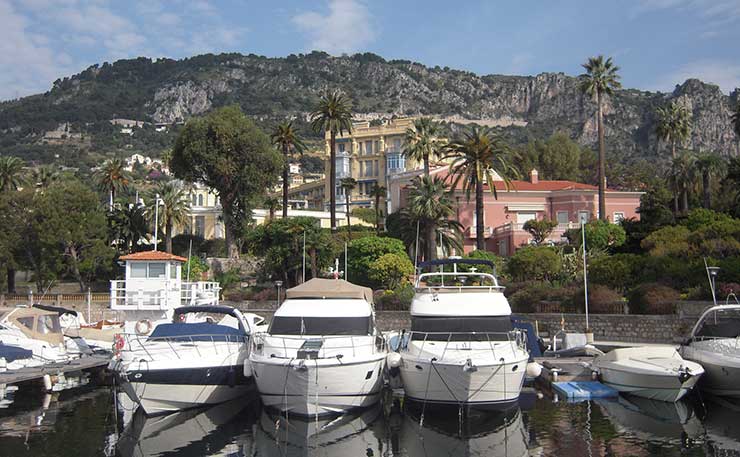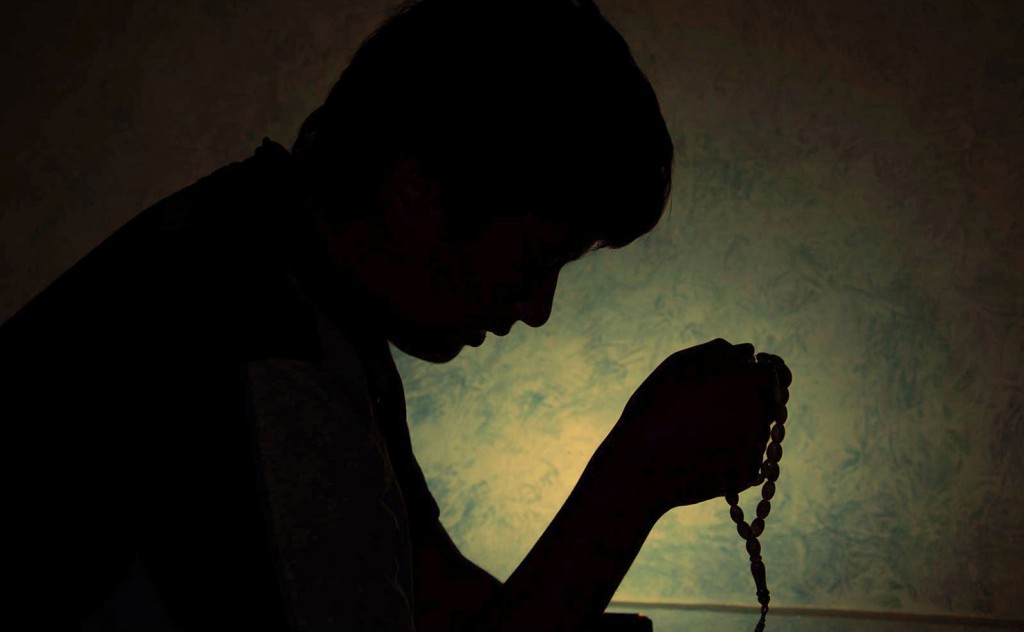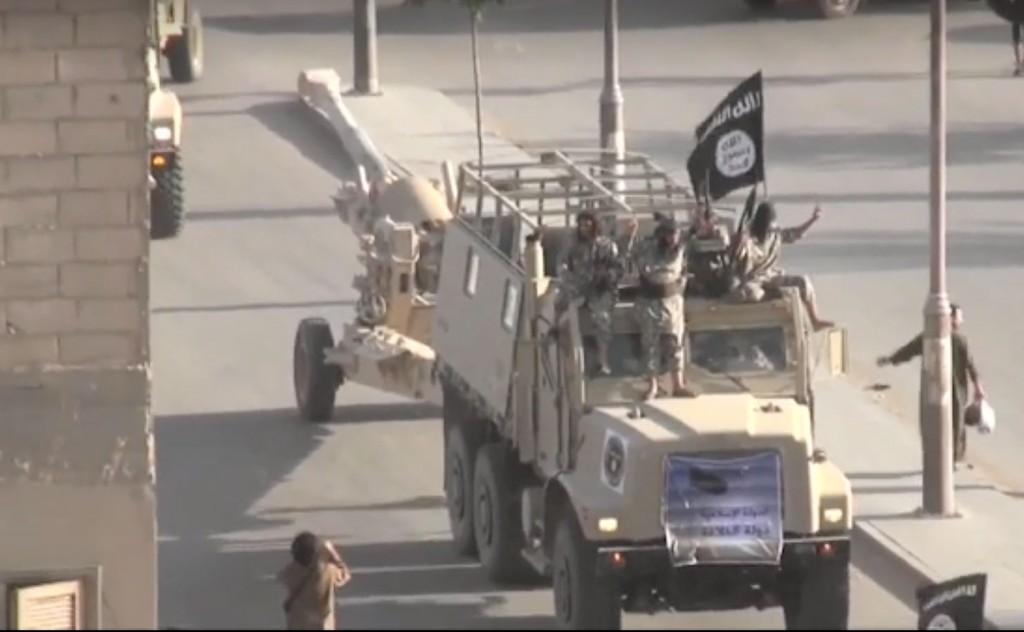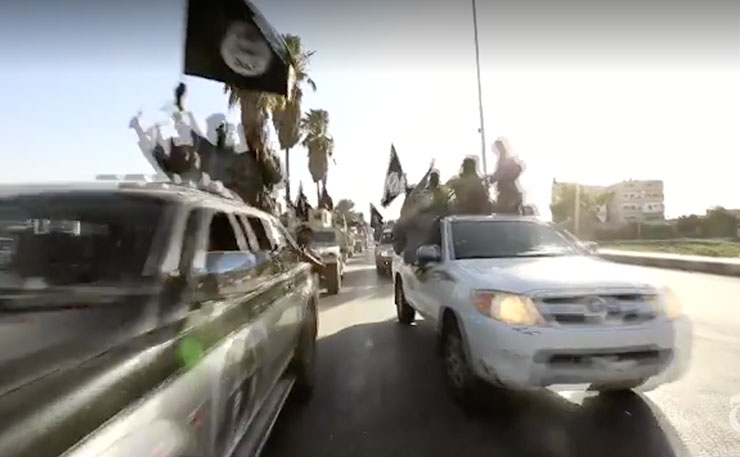For many young radicals, Jihad is a path to justice and becoming a ‘super hero’. Michael Brull explains.
When it comes to the acts of individual jihadis recruited by ISIS to blow up people in the West, there is much that is beyond our understanding.
Human beings are extremely complex. A common reaction to a person committing suicide is loved ones – people who knew the victim best – exclaiming that they could have never seen it coming.
There is a lot we don’t know about the individual minds of jihadis, and a lot we will probably never know.
We may be able to build a profile of what kind of people have been involved in jihadi terrorism. Olivier Roy, one of the world’s leading specialists on political Islam and jihadis, produced a paper on jihadis in Europe last year.
Most are young men. They tend to be second-generation immigrants in Europe, or converts. Other than that, Roy writes, “there is no common sociological background”.
Some aren’t integrated, others have diplomas and jobs. Many are working class or lower middle class backgrounds.
In France, “the [region] with the highest absolute number of radicals is Alpes-Maritimes (Nice), which is a rather rich [region]”.
Many have backgrounds of petty criminality, before returning to the faith with true zeal, or converting to Islam. These are often linked to personal crises.

Parents tend to disapprove of their children’s radicalisation. And as Scott Atran, Hammad Sheikh and Angel Gomez have shown, there is usually a small-group radicalisation process.
Turning to jihad is typically a “relatively sudden individual jump”, Roy says, rather than a cumulative process.
Why do they join the jihad? Roy writes the “main motivation” of “young men joining jihad seems to be the fascination for a narrative we could call ‘the small brotherhood of super-heroes who avenge the Muslim ummah’”.
He explains:
“This ummah is global and abstract, and never identified with a national cause (Palestine, or even the Syrian or Iraqi nations). In Iraq the foreign volunteers don’t identify with the local Arab population they are supposed to support (which is why they need either imported spouses or sex slaves). Palestine is not at the core of the mobilisation process (Palestinians are mainly supported by progressive people and cultural Muslims, not by the Salafists, because theirs is seen as a “profane” cause).”
Roy offers two reasons why jihad is “expressed in religious terms”. Firstly “most of the radicals have a Muslim background, which makes them open to a process of re-Islamisation (almost none of them having been pious before entering the process of radicalisation).”
Secondly, “jihad is the only cause on the global market. If you kill in silence, it will be reported by the local newspaper; if you kill yelling “Allahuakbar,” you are sure to make the national headlines. The ultra-left or radical ecology is too bourgeois and intellectual for them.”
Roy argues that Salafism (a rigid, fundamentalist strand of Sunni Islam that advocates return to the purer days of Islam’s early days) is adopted because it is “both simple to understand (do’s and don’ts) and rigid, providing a personal psychological structuring effect.
Moreover, Salafism is the negation of cultural Islam, the Islam of their parents and of their roots. Instead of providing them with roots, Salafism glorifies their own deculturation and makes them feel like better Muslims than their parents. Salafism is the religion, by definition, of a disenfranchised youngster.”
Roy observes that “the bulk of the Salafists are not jihadist, and many jihadists don’t give a damn about theology. None of the radicals have a past history of piety.” Though jihadis are often acclaimed followers of the real Islam, Roy notes that, “Almost none followed a real process of religious education. Their religious knowledge is small (some brought with them Islam for Dummies).”
“There is no theological dimension. Their knowledge of Islam is minimal and they don’t care, although the religious myth plays an emotional role.”
Roy also dismisses a link between the Muslim communities of Europe and the jihadis. He rejects the view that jihadism is passed down from parents.
“Most” jihadis, Roy writes, “either broke with the Islam of their parents or had no religious transmission from their parents”. Furthermore, the radicals “have a loose or no connection with the Muslim communities in Europe. A sense of surprise tends to be evident in the aftermath of a terrorist action. Investigators and journalists who meet the family and the entourage of the attacker are told the same story: ‘He was a quiet, nice boy (variation: he was just a petty delinquent), and he was not pious, drank alcohol, had girls etc., except that recently his attitude has drastically changed.’”
Few were regular attendees at their local mosques, and, “None of them was active in religious activities (proselytism): when they preach Islam it is to recruit other radicals, not to spread the good news. This explains why (1) the close monitoring of mosques brings little information; (2) imams have little or no influence on the process of radicalisation; (3) “reforming Islam” does not make sense: they just don’t care about ‘what Islam really means.’”

They have “little connection” with European Muslim communities, “they have broken with their families (the fact that they desperately try to convert their families shows their degree of estrangement, not of proximity), and they don’t arouse fascination, except of course among their peers. They don’t even reconnect with a real Muslim local society in Syria or Yemen.”
So if jihadis come from poor families and rich ones, are educated and unemployed, have criminal records and no criminal records, are from rich suburbs and poor ones – in short, if they have “no common sociological background” – what kind of approach in tackling this problem makes sense?
For those who think “reforming” Islam is the answer, it is hard to see what influence this kind of approach might have on those who don’t believe in the Islam of their local mosque or parents, and whose “knowledge of Islam is minimal”.
No-one can address all of the personal crises of individuals across Europe which might make them susceptible to sympathy to ISIS. Governments cannot solve all issues, nor can they prevent all crimes.
One approach which would be more feasible is trying to undermine what makes ISIS attractive in the first place.
Roy says that the “main motivation” of joining the ISIS jihad is the narrative of becoming a superhero avenging the Muslim ummah. Roy’s argument that jihad is simply “expressed in religious terms” is significant. That is, it provides a justification, and a language with currency to express rage that might otherwise remain impotent.
ISIS terrorists go from being marginalised youths, to becoming international news.
When people in the West talk about radicalisation of young Muslim men, they think of teenagers going on the internet, and being brainwashed by someone talking about jihad.
They think of propaganda videos of people being beheaded, and can’t imagine how someone could ever find that kind of thing appealing. Yet however barbaric ISIS may openly be, it does not necessarily sell itself to recruits on the basis of barbarism.
In his book, The New Threat from Islamic Militancy, Jason Burke gives a sample of a speech by the leader of ISIS, Abu Bakr al-Baghdadi, when he declared the new caliphate. Baghdadi blamed the sorry plight of Muslims today on the end of the caliphate:
“Then their state ceased to exist, so the disbelievers were able to weaken and humiliate the Muslims, dominate them in every region, plunder their wealth and resources, and rob them of their rights. They accomplished this by attacking and occupying their lands, placing their treacherous agents in power to rule the Muslims with an iron fist, and spreading dazzling and deceptive slogans such as: civilization, peace, co-existence, freedom, democracy, secularism, baathism, nationalism, and patriotism, among other false slogans.”
He denounced Western double standards on the issue of terrorism:
“But terrorism does not include the killing of Muslims in Burma and the burning of their homes. Terrorism does not include the dismembering and disemboweling of the Muslims in the Philippines, Indonesia, and Kashmir. Terrorism does not include the killing of Muslims in the Caucasus and expelling them from their lands. Terrorism does not include making mass graves for the Muslims in Bosnia and Herzegovina, and the slaughtering of their children. Terrorism does not include the destruction of Muslims’ homes in Palestine, the seizing of their lands, and the violation and desecration of their sanctuaries and families.
Terrorism does not include the burning of masajid in Egypt, the destruction of the Muslims’ homes there, the rape of their chaste women, and the oppression of the mujahidin in the Sinai Peninsula and elsewhere.
Terrorism does not include the extreme torture and degradation of Muslims in East Turkistan and Iran (by the rafidah), as well as preventing them from receiving their most basic rights. Terrorism does not include the filling of prisons everywhere with Muslim captives. Terrorism does not include the waging of war against chastity and hijab (Muslim women’s clothing) in France and Tunis. It does not include the propagation of betrayal, prostitution, and adultery.
Terrorism does not include the insulting of the Lord of Mightiness, the cursing of the religion, and the mockery of our Prophet (peace be upon him). Terrorism does not include the slaughtering of Muslims in Central Africa like sheep, while no one weeps for them and denounces their slaughter.
All this is not terrorism. Rather it is freedom, democracy, peace, security, and tolerance! Sufficient for us is Allah, and He is the best Disposer of affairs.”
Baghdadi instead reclaims the word terrorism, customarily levelled against Muslim violence: “Terrorism is to refuse humiliation, subjugation, and subordination (to the kuffar – infidels). Terrorism is for the Muslim to live as a Muslim, honorably with might and freedom. Terrorism is to insist upon your rights and not give them up.”
Baghdadi concludes: “Raise your head high, for today – by Allah’s grace – you have a state and khilafah, which will return your dignity, might, rights, and leadership. It is a state where the Arab and non-Arab, the white man and black man, the easterner and westerner are all brothers.”

People all over the world were united in his new pseudo-caliphate, where they all stand “in a single trench, defending and guarding each other, and sacrificing themselves for one another. Their blood mixed and became one, under a single flag and goal, in one pavilion, enjoying this blessing, the blessing of faithful brotherhood…. Therefore, rush O Muslims to your state. Yes, it is your state. Rush, because Syria is not for the Syrians, and Iraq is not for the Iraqis. The earth is Allah’s.”
To most people, this won’t be persuasive. The pejorative reference to Shi’ites in Iran, as well as “adultery” would be just some of the red flags to whoever somehow missed ISIS’s murder videos.
Yet the fact that no-one who reads this will become more sympathetic to ISIS as a result of his words is beside the point.
Many in the West have no idea why Muslims might want to avenge the ummah, and would be unable to make sense of these arguments. Yet there are young men out there who probably found the speech exhilarating.
In the west, we don’t hear about that side of ISIS propaganda. We are more likely to hear about ISIS making theological arguments, rather than presenting a coherent narrative which is rooted in political arguments about injustice.
Arguing that Muslims need their own state to end their persecution isn’t so different from the argument that the persecution of Jews would only end with the creation of a Jewish state.
If we want to counter an argument, we should at least know what we are arguing against.
Roy concludes with suggestions, such as debunking “the narrative of heroism”. Yet in and of itself, this may not solve much.
We have previously seen other so-called Islamic states, including Afghanistan, Pakistan, Sudan, Iran, and Saudi Arabia. They didn’t end the calls for jihad either.
If ISIS is discredited, that may just pave the way for the next wave of jihadis.
If we in the west are determined to challenge the “main motivation” of jihad, perhaps we should address the reason young men are interested in avenging the Muslim Ummah.
That is, perhaps we should consider addressing their grievances.
Donate To New Matilda
New Matilda is a small, independent media outlet. We survive through reader contributions, and never losing a lawsuit. If you got something from this article, giving something back helps us to continue speaking truth to power. Every little bit counts.





